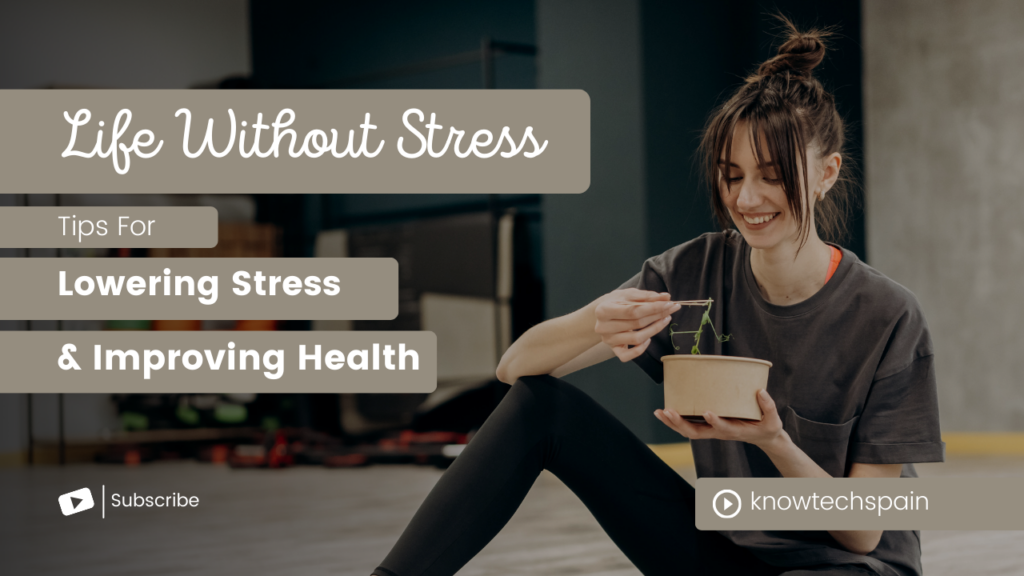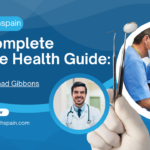Life Without Stress: Tried-and-True Methods for Lowering Stress and Improving Health
In the fast-paced world of today, many people now frequently face stress and worry. The responsibilities of life, work, and family can cause excessive worry, which can have an impact on our mental, emotional, and physical health. However, stress-free living is achievable by implementing tried-and-true methods intended to lessen anxiety and foster calm and wellbeing. This manual examines a number of practical methods to assist you with stress management and developing a more peaceful way of living.
Table of Contents
- Understanding Stress and Its Impact
- The Importance of Mindfulness
- Breathing Techniques for Instant Calm
- Physical Activity: A Natural Stress Reliever
- The Role of Nutrition in Mental Health
- Establishing Healthy Sleep Habits
- The Power of Social Connections
- Time Management Techniques
- Incorporating Relaxation Practices
- Seeking Professional Help When Necessary
- Conclusion: Embracing a Stress-Free Lifestyle
Recognizing Stress and Its Effects
It’s critical to comprehend what stress is and how it impacts us before delving into stress-reduction strategies. Stress triggers the body’s “fight or flight” reaction in response to perceived difficulties or dangers. A small amount of stress can be inspiring, but long-term stress can cause major health problems like heart disease, depression, anxiety disorders, and compromised immune systems.
Effective stress management begins with identifying its symptoms, which include irritation, exhaustion, and trouble focusing.
The Value of Being Mindful
The discipline of mindfulness involves being totally present and involved in the moment without passing judgment. Its ability to effectively lower tension and anxiety has led to its rise in popularity. People can learn to notice their thoughts and feelings without getting overwhelmed by them by practicing mindfulness.
How to Engage in Mindfulness Practice:
Meditation: Make time each day to meditate for a short while, paying attention to your breathing and allowing your thoughts to flow.
Eating mindfully involves focusing on the flavor, texture, and aroma of your food and giving yourself permission to savor every bite.
Nature Walks: To help you stay grounded in the here and now, spend some time outside taking in the sights and sounds around you.
Breathing Methods for Immediate Calm
Exercises involving deep breathing are an effective way to lower anxiety. They may be done anywhere, at any time, and they trigger the body’s relaxation response.
Techniques for Effective Breathing:
Diaphragmatic Breathing: Take a comfortable seat or lie down. Let your belly rise as you take a deep breath through your nostrils. Breathe out slowly through your lips. Continue for a few minutes.
4-7-8 Breathing: Take a four-second breath, hold it for seven seconds, and then gently release it for eight seconds. This method aids in nervous system relaxation.
Exercise: A Natural Way to Reduce Stress
One of the best strategies to deal with stress is to engage in regular physical activity. Exercise helps lower stress and enhance the quality of sleep by releasing endorphins, the body’s natural mood enhancers.
Methods for Including Physical Activity:
Choose an Enjoyable Activity: To keep motivated, pick activities you enjoy, such as yoga, dance, hiking, or cycling.
Establish a Routine: On most days of the week, try to get in at least 30 minutes of moderate activity, and vary your activities to keep things fresh.
Nutrition’s Impact on Mental Health
Our mental health is greatly impacted by the foods we eat. A nutrient-dense, well-balanced diet can lower anxiety and improve general wellbeing.
Nutritional Advice:
Include Omega-3 Fatty Acids: Foods that promote brain health and lower anxiety include walnuts, flaxseeds, and salmon.
Limit processed foods and sugar: While eating a lot of sugar might cause mood swings and worry, eating healthy meals can provide you steady energy and a happier attitude.
Stay Hydrated: Make sure you’re drinking enough water throughout the day because dehydration can impact mood and cognitive performance.
Developing Restful Sleeping Patterns
Getting enough sleep is crucial for mental well-being. Maintaining a regular sleep schedule is essential since chronic sleep loss can make worry and stress worse.
Advice for Improved Sleep:
Establish a Sleep Schedule: Even on the weekends, go to bed and wake up at the same time each day.
Reduce the amount of time spent on screens before bed: Screen blue light can interfere with your body’s melatonin production, which can cause sleep disturbances.
Establish a Calm Nighttime Routine: Before going to bed, do something soothing, like reading, taking a warm bath, or doing some light stretching.
The Influence of Social Networks
Emotional well-being depends on having strong social ties. Interacting with loved ones can boost general wellbeing, lessen feelings of loneliness, and offer support.
How to Encourage Relationships:
Speak with Your Loved Ones: Whether it’s in person, over the phone, or over video chat, make an effort to spend meaningful time with your loved ones.
Participate in Support Groups: You can meet new people and form relationships by taking part in community events or clubs that share your interests.
Methods of Time Management
Feelings of stress and overload can be lessened with good time management. You may make a timetable that is easier to manage by prioritizing and organizing your responsibilities.
Time Management Advice:
Set Task Priorities: Determine which chores are most important and concentrate on finishing them first by using tools like digital planners or to-do lists.
Divide Up the Work into Smaller Steps: Big endeavors can seem intimidating. To make things seem more attainable, break them down into smaller, more doable steps.
Including Techniques for Relaxation
Stress can be decreased and general wellbeing can be enhanced by incorporating relaxation techniques into your regular routine.
Techniques for Relaxation:
Progressive Muscle Relaxation: From your toes to your head, tense and then relax every muscle group in your body. This method can aid in the physical release of tension.
Assisted Visualization: Shut your eyes and picture a serene setting, such a forest or a beach. Pay attention to the details while letting yourself experience the serenity of the setting.
When Needed, Seeking Professional Assistance
Seeking professional assistance could be helpful if stress and worry become too much to handle. Professionals in mental health can offer you coping mechanisms, therapy, and support that is specific to your needs.
When to Get Assistance:
if your anxiety is getting in the way of your everyday activities or keeping you from engaging in things you used to love.
if you suffer from physical signs of anxiety, including persistent exhaustion or a fast heartbeat.
if, despite trying different methods, you are still having trouble managing stress.
In summary: Adopting a Lifestyle Free of Stress
It takes deliberate effort and the application of tried-and-true methods to lead a stress-free life. You may greatly lower anxiety and improve your general well-being by comprehending the nature of stress and implementing mindfulness, healthy routines, and useful coping mechanisms into your everyday life. As you travel this path, keep in mind that you must have patience with yourself. Accept the little things, ask for help when you need it, and make a commitment to living a peaceful, happy life. Today is the first step towards living a stress-free existence!


